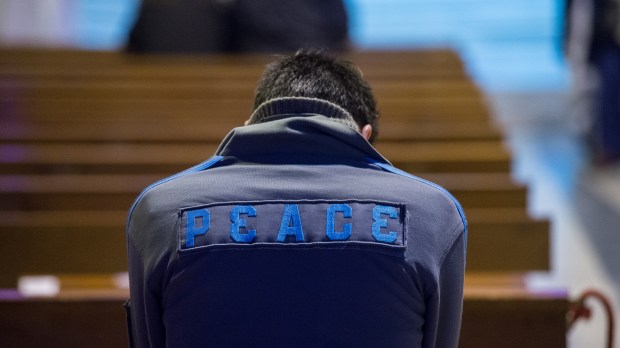Lenten Campaign 2025
This content is free of charge, as are all our articles.
Support us with a donation that is tax-deductible and enable us to continue to reach millions of readers.
You think you know what’s going on. You’ve done all the prep, made the big decision to enter the Church, and now you’re a Catholic. But — haha! — you don’t know squat.
It’s what pretty much all converts do, especially the bookish ones who read themselves into the Church. Some of us, the bookish ones, always think we know more than we do. I know, because I was one of them.
The tricky thing is that even the humbler among us can’t possibly know what we don’t know. I think we imagine Catholic knowledge as like the times tables. You know what you don’t know and how to find out. You know the elevens but not the twelves, so you memorize the twelves. All very simple. The new Catholic tends to think very question has a propositional answer, probably found in the Catechism or some encyclical.
Living the Catholic life is much more like a marriage. The most important knowledge can’t be put into propositions.
You bind yourself to someone very complicated and more different from you than you realize, someone you can’t read like a book even if you think you can. You know in a general way two or three or four of the thousand reasons she’ll respond the way she does. Those two or three or four reasons may lead you to expect a very different response from the one you get. You’re perfectly logical, but ignorant. You reason beyond your data.
You’ll never get all the data, even as you get to know each other better. This is important: Notice how you learn what you do know. You learn by being there, by making a life together, by patience and self-sacrifice, by forgiveness (asked for and received) and gratitude. You gather a thousand facts daily without knowing it because you’re looking closely. You learn, in other words, by loving.
Five rules
Let me offer five tips for new Catholics. My family and I entered the Church 16 years ago and I know something now about what I didn’t know then.
First, accept that you’re a newbie with lots to learn. Think of yourself as a bright 4th grader who’s heard of calculus but has years of study before he takes it.
Don’t think you know more than you do because you’ve studied so much, and for heaven’s sake don’t lecture your new fellow Catholics. You’ll keep yourself from learning what you can and you’ll annoy them. A lose-lose. Don’t worry that you can’t make any sense of so many things Catholics take for granted. You’ll get it eventually. It’s calculus and you’re the 4th grader.
Second, use the tools the Church gives you. Many converts configure their Catholic life along the lines of their previous life. That’s what they know. The formerly religious ones go to Mass the same way they went to church on Sundays. They avoid anything that looks Italian.
Stay after Mass to light a candle and pray. Pray to Our Lady or St. Joseph at their altars or to the saints at their statues. Drop by the church when you’re in town to sit with Jesus in the Tabernacle. Sign up for a slot at Adoration. Go to confession on the spur of the moment. Put up crucifixes and holy pictures at home (even if that looks Italian). Collect holy cards and say the prayers on the back. Carry a rosary. Wear a crucifix or a Miraculous Medal or a scapular, or what the heck, all three.
Read more: It takes practice to be a practicing Catholic
Do it even if it feels weird. (Or Italian.) Soon it won’t and you’ll have tools for holiness you didn’t have before. The tools themselves will teach you something about the reality to which they point. You’ll wonder how you got along without them.
Third, jump into the extracurricular life of your parish. For example, if you’re a man, join the Knights of Columbus. Don’t just do the comfortable things, the things you did in your old life, like join the parish pro-life group or the finance committee. Join the distinctively Catholic things and get to know the cradle Catholics who aren’t like you or maybe anyone you knew in your former life. They’ll teach you a lot by speaking a different kind of religious language. We didn’t do this — no one ever suggested it — and I regret that a lot.
Fourth, don’t tell Catholics what to do. Remember you’re a 4th grader. Even the people who’ve never read the Catechism or a single encyclical know more than you do. Their instincts are better trained than yours, they see many things more clearly, even if they can’t articulate things the way you can. And any great new plan you can think of has almost been thought of and tried hundreds of times over the years.
Finally, remember that you know because you love and you learn by loving, and that loving well takes commitment and time. Live the life the Church gives you. Think of her as a spouse you do not want to hurt or disappoint. Just keep at it. You’ll learn, lots.
Read more: Help! I’ve just become a Catholic. Now What?

